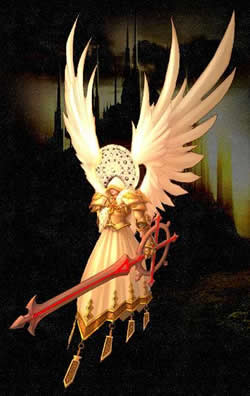the expression of emotion in man and animals-第55部分
按键盘上方向键 ← 或 → 可快速上下翻页,按键盘上的 Enter 键可回到本书目录页,按键盘上方向键 ↑ 可回到本页顶部!
————未阅读完?加入书签已便下次继续阅读!
'12' J。 R。 Forster; ‘Observations during a Voyage round the World;' 4to; 1778; p。 229。 Waitz gives (‘Introduction to Anthropology;' Eng。 translat。 1863; vol。 i。 p。 135) references for other islands in the Pacific。 See; also; Dampier ‘On the Blushing of the Tunquinese' (vol。 ii。 p。 40); but I have not consulted this work。 Waitz quotes Bergmann; that the Kalmucks do not blush; but this may be doubted after what we have seen with respect to the Chinese。 He also quotes Roth; who denies that the Abyssinians are capable of blushing。 Unfortunately; Capt。 Speedy; who lived so long with the Abyssinians; has not answered my inquiry on this head。 Lastly; I must add that the Rajah Brooke has never observed the least sign of a blush with the Dyaks of Borneo; on the contrary under circumstances which would excite a blush in us; they assert 〃that they feel the blood drawn from their faces。〃
'13' Transact。 of the Ethnological Soc。 1870; vol。 ii。 p。 16。
Several trustworthy observers have assured me that they have seen on the faces of negroes an appearance resembling a blush; under circumstances which would have excited one in us; though their skins were of an ebony…black tint。 Some describe it as blushing brown; but most say that the blackness becomes more intense。 An increased supply of blood in the skin seems in some manner to increase its blackness; thus certain exanthematous diseases cause the affected places in the negro to appear blacker; instead of; as with us; redder。'16' The skin; perhaps; from being rendered more tense by the filling of the capillaries; would reflect a somewhat different tint to what it did before。 That the capillaries of the face in the negro become filled with blood; under the emotion of shame; we may feel confident; because a perfectly characterized albino negress; described by Buffon;'17' showed a faint tinge of crimson on her cheeks when she exhibited herself naked。 Cicatrices of the skin remain for a long time white in the negro; and Dr。 Burgess; who had frequent opportunities of observing a scar of this kind on the face of a negress; distinctly saw that it 〃invariably became red whenever she was abruptly spoken to; or charged with any trivial offence。〃'18' The blush could be seen proceeding from the circumference of the scar towards the middle; but it did not reach the centre。 Mulattoes are often great blushers; blush succeeding blush over their faces。 From these facts there can be no doubt that negroes blush; although no redness is visible on the skin。
'14' Humboldt; ‘Personal Narrative;' Eng。 translat。 vol。 iii。 p。 229。
'15' Quoted by Prichard; Phys。 Hist。 of Mankind; 4th edit 1851; vol。 i。 p。 271。
'16' See; on this head; Burgess; ibid。 p。 32。 Also Waitz; ‘Introdnction to Anthropology;' Eng。 edit。 vol。 i。 p。 139。 Moreau gives a detailed account (‘Lavater;' 1820; tom。 iv。 p。 302) of the blushing of a Madagascar negress…slave when forced by her brutal master to exhibit her naked bosom。
I am assured by Gaika and by Mrs。 Barber that the Kafirs of South Africa never blush; but this may only mean that no change of colour is distinguishable。 Gaika adds that under the circumstances which would make a; European blush; his countrymen 〃look ashamed to keep their heads up。〃
It is asserted by four of my informants that the Australians; who are almost as black as negroes; never blush。 A fifth answers doubtfully; remarking that only a very strong blush could be seen; on account of the dirty state of their skins。 Three observers state that they do blush;'19' Mr。 S。 Wilson adding that this is noticeable only under a strong emotion; and when the skin is not too dark from long exposure and want of cleanliness。 Mr。 Lang answers; 〃I have noticed that shame almost always excites a blush; which frequently extends as low as the neck。〃 Shame is also shown; as he adds; 〃by the eyes being turned from side to side。〃 As Mr。 Lang was a teacher in a native school; it is probable that he chiefly observed children; and we know that they blush more than adults。 Mr。 G。 Taplin has seen half…castes blushing; and he says that the aborigines have a word expressive of shame。 Mr。 Hagenauer; who is one of those who has never observed the Australians to blush; says that he has 〃seen them looking down to the ground on account of shame;〃 and the missionary; Mr。 Bulmer; remarks that though 〃I have not been able to detect anything like shame in the adult aborigines; I have noticed that the eyes of the children; when ashamed; present a restless; watery appearance; as if they did not know where to look。〃
'17' Quoted by Prichard; Phys。 Hist。 of Mankind; 4th edit。 1851; vol。 i。 p。 225。
'18' Burgess; ibid。 p。 31。 On mulattoes blushing; see p。 33。 I have received similar accounts with respect to; mulattoes。
'19' Barrington also says that the Australians of New South Wales blush; as quoted by Waitz; ibid。 p。 135。
The facts now given are sufficient to show that blushing; whether or not there is any change of colour; is common to most; probably to all; of the races of man。
_Movements and gestures which accompany Blushing_。Under a keen sense of shame there is a; strong desire for concealment。'20' We turn away the whole body; more especially the face; which we endeavour in some manner to hide。 An ashamed person can hardly endure to meet the gaze of those present; so that he almost invariably casts down his eyes or looks askant。 As there generally exists at the same time a strong wish to avoid the appearance of shame; a vain attempt is made to look direct at the person who causes this feeling; and the antagonism between these opposite tendencies leads to various restless movements in the eyes。 I have noticed two ladies who; whilst blushing; to which they are very liable; have thus acquired; as it appears; the oddest trick of incessantly blinking their eyelids with extraordinary rapidity。 An intense blush is sometimes accompanied by a slight effusion of tears;'21' and this; I presume; is due to the lacrymal glands partaking of the increased supply of blood; which we know rushes into the capillaries of the adjoining parts; including the retina。
'20' Mr。 Wedgwood says (Dict。 of English Etymology; vol。 iii。 1865; p。 155) that the word shame 〃may well originate in the idea of shade or concealment; and may be illustrated by the Low German _scheme_; shade or shadow。〃 Gratiolet (De la Phys。 pp。 357…362) has a good discussion on the gestures accompanying shame; but some of his remarks seem to me rather fanciful。 See; also; Burgess (ibid。 pp。 69; 134) on the same subject。
Many writers; ancient and modern; have noticed the foregoing movements; and it has already been shown that the aborigines in various parts of the world often exhibit their shame by looking downwards or askant; or by restless movements of their eyes。 Ezra cries out (ch。 ix。 6); 〃O; my God! I am ashamed; and blush to lift up my head to thee; my God。〃 In Isaiah (ch。 I。 6) we meet with the words; 〃I hid not my face from shame。〃 Seneca remarks (Epist。 xi。 5) 〃that the Roman players hang down their heads; fix their eyes on the ground and keep them lowered; but are unable to blush in acting shame。〃 According to Macrobius; who lived in the filth century (‘Saturnalia;' B。 vii。 C。 11); 〃Natural philosophers assert that nature being moved by shame spreads the blood before herself as a veil; as we see any one blushing often puts his hands before his face。〃 Shakspeare makes Marcus (‘Titus Andronicus;' act ii; sc。 5) say to his niece; 〃Ah! now thou turn'st away thy face for shame。〃 A lady informs me that she found in the Lock Hospital a girl whom she had formerly known; and who had become a wretched castaway; and the poor creature; when approached; hid her face under the bed…clothes; and could not be persuaded to uncover it。 We often see little children; when shy or ashamed; turn away; and still standing up; bury their faces in their mother's gown; or they throw themselves face downwards on her lap。
'21' Burgess; ibid。 pp。 181; 182。 Boerhaave also noticed (as quoted by Gratiolet; ibid。 p。 361) the tendency to the secretion of tears during intense blushing。 Mr。 Bulmer; as we have seen; speaks of the 〃watery eyes〃 of the children of the Australian aborigines when ashamed。
_Confusion of mind_。Most persons; whilst blushing intensely; have their mental powers confused。 This is recognized in such common expressions as 〃she was covered with confusion。〃 Persons in this condition lose their presence of mind; and utter singularly inappropriate remarks。 They are often much distressed; stammer; and make awkward movements or strange grimaces。 In certain cases involuntary twitchings of some of the facial muscles may be observed。 I have been informed by a young lady; who blushes excessively; that at such times she does not even know what she is saying。 When it was suggested to her that this might be due to her distress from the consciousness that her blushing was noticed; she answered that this could not be the case; 〃as she had sometimes felt quite as stupid when blushing at a thought in her own room。〃
I will give an instance of the extreme disturbance of mind to which some sensitive men are liable。 A gentleman; on whom I can rely; assured me that he had been an eye…witness of the following scene:A small dinner…party was given in honour of an extremely shy man; who; when he rose to return thanks; rehearsed the speech; which he had evidently learnt by heart; in absolute silence; and did not utter a single word; but he acted as if he were speaking with much emphasis。 His friends; perceiving how the case stood; loudly applauded the imaginary bursts of eloquence; whenever his gestures indicated a pause; and the man never discovered that he had remained the whole time completely silent。 On the contrary; he afterwards remarked to my friend; with much satisfaction; that he thought he had succeeded uncommonly well。
When a person is much ashamed or very shy; and blushes intensely; his heart beats rapidly and his breathing is disturbed。 This can hardly fail to affect the circulation of the blood within the brain; and perhaps the mental powers。 It seems however doubtful; judging from the still more powerful influence of




